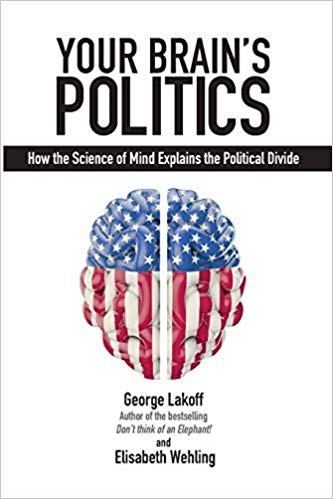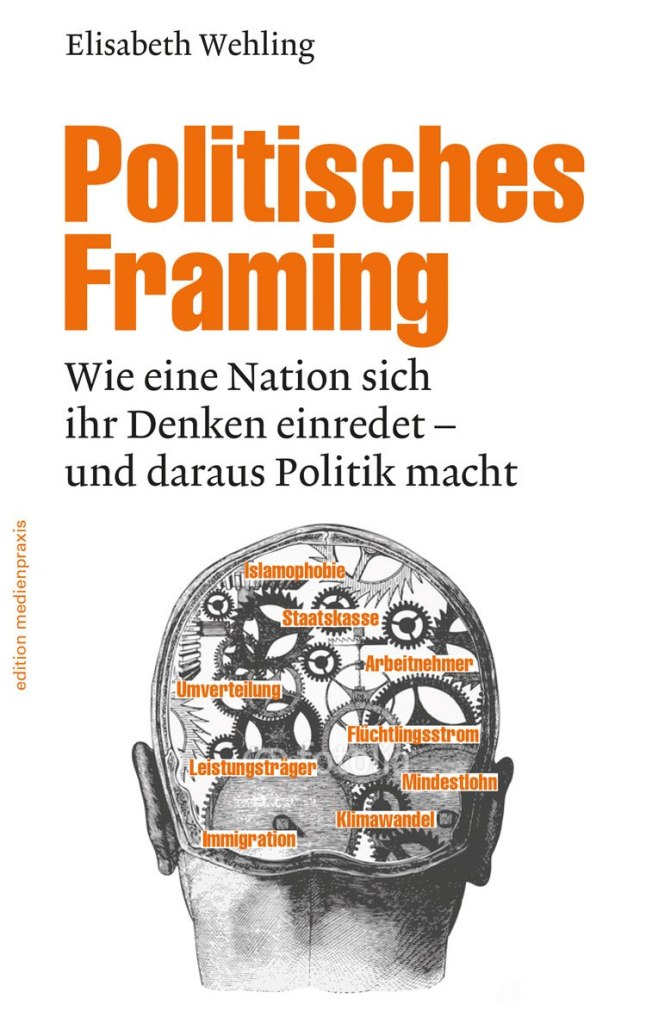Framing we know of from the manipulation of pictures, but it also increasingly applies to the manipulation of language.
In propaganda, framing is the make-invisible of actual reality by audio-visual and/or linguistic means. For example: A war of aggression against a much smaller, helpless opponent is called “a peace-keeping operation” or a Ministry of Warfare is called “Ministry of Defense.” The ills of forced mass immigration are infantilized by showing us pictures of only small children who evidently could need some help.
There are regimes in the world who employ framing experts who go over pre-productions and manuscripts and look for terms that are too negative or telling, and replace them with happy-go-lucky terminologies. It’s a selection process.
Framing your Political Brain
Another use of framing is selling deliberate lies through emotionally charged words. Local resistance forces we call “terrorists.” Governments we don’t like we call “regimes.” Donald Trump is “a racist conman.”
Framers work with framing manuals. One such manual was leaked on February 11 by Die Welt, a German newspaper. The manual belonged to regime TV -ARD. In the framing manual, authored by a certain Elisabeth Wehling, a linguist who lives and teaches in the United States. She has contacts to George Soros. The collusion between the Soros ‘Free Society Foundation’ (also framed: it is a censorship organization) and German regime TV thus lies exposed for all to see.
Ms. Wehling was allegedly paid 120,000 euros for her ‘Framing Manual’ that she produced while working at Berkeley International Framing Institute. The manifesto details how to manipulate the public by selecting words that are emotionally attractive. Other words have to be avoided at all costs by the regime.
“Lies are interesting because they are emotionally hyped, and when the brain hears a lie two, three, four, five times there will be processes in the brain to recognize the ‘story’ no matter if it was true or false. And eventually the brain says to itself this is too complicated, now this is a truth for me!” -Elisabeth Wehling
Framing is not really new. We had rhetoric, we had conventional propaganda, we had neuro-linguistic programming. But academics like to give new names to recycled ideas. Wehling: “When you want to improve the ARD against its enemy, your position must entail moral arguments.” Framing thus is post-factual in nature.
As Andreas Ganser, an expert on state propaganda, explained: “Framing means one builds a frame where your thoughts are inescapable. Your thoughts work only within that set-up frame.”
Defenders of Wehling who wrote books such as ‘Political Framing’ and ‘Your Brain’s Politics’ and gave a TED talk on ‘Political Morality in your Brain’ say she’s just a cold academic. Critics say she has sold her soul. Language manipulation, in the hands of the wrong people, is a monstrous weapon.
Books by Elisabeth Wehling on Amazon:











